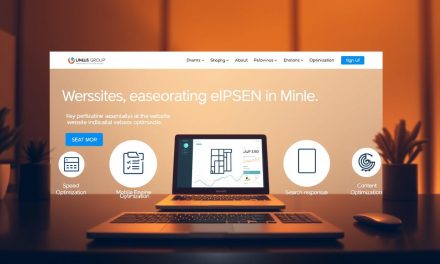When Claire left her engineering job in Lyon, she feared losing structure and credibility. She joined a recognised professional association and found a steady partner that helped her map a clear path.
We will show how a reputable organization provides practical resources—technical libraries, expert advice, and templates—so you keep high standards without wasting time. This guide focuses on real gains for independents working in France’s industry.
The right group builds a strong network and turns contacts into opportunities: referrals, collaborations, and visibility with clients and employer panels seeking vetted talent. You’ll also rely on timely information—policy updates and compliance briefings—that speeds good decisions.
Beyond tools and briefs, community support matters: peer groups, mentoring, and volunteer roles that sharpen skills and broaden perspective. We position these bodies as long-term allies that boost your credibility and pricing power as an independent.
Table of Contents
Key Takeaways
- One strong organization gives practical resources and clear standards.
- A reliable network converts contacts into tangible opportunities.
- Regular information flows help you stay compliant and confident.
- Community activities build skills, reputation, and visibility.
- Membership should align with your career goals for measurable returns.
Why professional associations matter for independent professionals in France
Joining a recognised professional associations gives independents a clear ethical and training framework that clients and employers instantly understand. This clarity speeds trust and reduces time spent explaining credentials.
Sector groups translate fast-moving industry developments into short, usable guidance. Expert committees filter standards, certifications, and tax or labor updates so you can act quickly.
For individuals, membership supports procurement visibility. Many buyers prefer vendors tied to a code of conduct, and directories or award panels make your profile visible at first glance.
Resilience is another benefit. During market shifts, alerts from your body help you reframe services and adjust pricing with confidence rather than guesswork.
- Faster credibility with employers and clients.
- Actionable information on recent developments.
- Local chapters that scale to national or EU platforms.
- Easy access to an advisory channel for scoping and compliance.
Benefits of membership: resources, recognition, and real opportunities
Membership unlocks priority access to curated technical libraries and timely guidance that saves you hours of research.
Members gain immediate entry to journals, searchable databases, and specialist groups. These resources point to best practices and reduce trial-and-error on deliverables.
Access to information, industry practices, and specialist groups
Specialist forums and practice-focused workshops translate standards into daily steps. You can adopt proven methods quickly and show clients a consistent approach.
Events and networking that grow your client base and employer visibility
Events and conferences create qualified leads. Talks, roundtables, and meetups increase visibility with employers who often consult member rosters when hiring.
Professional recognition, post-nominals, and community support
Recognized post-nominals signal competence and complement your portfolio. Structured mentoring and volunteer roles build credibility and leadership that clients notice.
- Curated resources: journals, databases, specialist groups.
- Events that generate leads and employer visibility.
- Post-nominals and awards for market differentiation.
- Mentoring, peer clinics, and CPD tracking tools to speed problem-solving.
| Benefit | What it delivers | How members use it |
|---|---|---|
| Curated resources | Journals, templates, databases | Adopt best practices and reduce delivery time |
| Events & networking | Conferences, roundtables, meetups | Generate leads and employer contacts |
| Recognition | Post-nominals, awards, case studies | Boost credibility and attract higher-value projects |
| Community support | Mentoring, volunteer roles, peer clinics | Faster advice and visible leadership opportunities |
For a practical next step, review our list of groups and decide which tier fits your goals at recommended member bodies.
How to choose the right association in your field in France
Start by mapping the services you offer to the concrete benefits an association can provide. List whether you need technical depth, client acquisition, or regulatory updates. This quick audit helps narrow choices fast.
Match your profession, interests, and career stage to membership tiers
Compare tiers against your current role: student, newcomer, or senior independent. Check eligibility, fees, and what each level actually delivers.
Focus on whether the tier gives mentoring, job boards, or procurement alerts—those matter most if client growth is your priority.
Evaluate member benefits: resources, events, accreditation, and advocacy
Score organizations by four criteria: depth of information resources, event audience, accreditation weight with French buyers, and advocacy impact.
- Information: journals, toolkits, and templates relevant to day‑to‑day tasks.
- Events: speaking slots, attendee profile, and lead-generation potential.
- Accreditation: recognition and cross-border portability.
- Advocacy: committee activity and policy outputs.
Finally, set a budget and time plan. Choose scalable membership and clarify exit or upgrade options as your goals evolve. Following these ways keeps your choice sustainable and aligned with your field.
Premier organizations to consider: a curated list by industry
This curated list highlights key organizations across industries that offer tangible benefits for independents in France. Use it to focus your due diligence and compare governance, reach, and member outcomes.
Engineering and technical bodies
Shortlist chartered institutions and sector bodies that provide registration pathways and recognized post‑nominals. These groups often host technical committees and specialist forums.
Life sciences and healthcare
Evaluate pharmacist and pharmaceutical associations that publish compliance toolkits. Recent legal appeals in the region show the value of clear competition-law programs.
Built environment and real estate
Prefer federations with strict ethics and transparency. Enforcement examples in Europe underline the need to check governance records before joining.
Water, energy, and environment
Look for utilities and sustainability organizations with concrete carbon or joint procurement programs. Oversight can make collective initiatives legitimate under scrutiny.
Media, marketing, and trade groups
Choose bodies that publish standards on advertising and data use. Practical frameworks reduce compliance risk and help members win larger contracts.
Sports and entertainment
Weigh groups tied to agents, clubs, and federations. Regulatory decisions affecting quotas and transfers can change strategic priorities fast.
- Checklist: verify governance, competition compliance, active French chapters, and documented member outcomes.
Membership that works for individuals: from students to seasoned professionals
Membership pathways help you move from study rooms to client briefings with clear steps and measurable goals.
Students and graduates gain quick access to libraries, journals, and starter toolkits that make the jump to client-ready delivery faster.
Young professionals use mentoring schemes and structured development plans to build marketable experience and confidence.
Senior members often take leadership roles in the body or speak at events to raise their profile and influence standards.
How to make membership pay off
- Align one or two committees with your goals rather than joining everything.
- Use awards, calls for papers, and competitions to create visible case studies.
- Track CPD against annual career targets so learning becomes income-focused.
- Ask for testimonials from association leaders to support bids and proposals.
Practical tip: choose the right part of the organisation—local chapter, technical board, or business forum—to match immediate priorities and convert contacts into concrete work.
Networking in practice: events, groups, and volunteer work that open doors

Focus on settings where buyers gather, then design your contribution to start conversations. Choose one clear goal for each event: leads, credibility, or market feedback.
Talks, conferences, and community meetups to expand your network
Pick events where your target clients attend. Offer a short talk or case study that answers their pain points.
Use meetups to test messages. Collect three qualified contacts per session and follow up with a tailored note.
Volunteer opportunities that build experience and credibility
Volunteer work can be strategic: chair sessions, judge awards, or run roundtables. These roles show applied skill and create warm introductions.
- Repurpose a keynote into slides, an article, and short clips to extend reach.
- Partner with an association to host a workshop and invite target buyers.
- Track ROI by tagging contacts, referrals, and deals in your CRM.
| Action | Outcome | Quick tip |
|---|---|---|
| Speak at an event | Qualified leads | Share a 3-point checklist |
| Join niche groups | Relevant relationships | Attend monthly and comment |
| Volunteer roles | Visible expertise | Pace commitments to keep delivery capacity |
Professional development: learning, credentials, and ongoing support
Access to vetted technical resources and mentoring shortens the path from theory to billable work. This makes study time produce visible returns for your career.
Libraries, databases, journals, and technical knowledge access
Prioritise access to the right databases, journals, and toolkits. These sources provide timely information and tested practices you can use immediately.
Use search alerts and curated feeds so research fits client deadlines rather than expanding endlessly.
Work experience, mentoring, and career services
Mentoring fills experience gaps quickly by matching you with real client scenarios. Career teams offer CV reviews, mock interviews, and portfolio feedback to sharpen positioning.
Structure development around quarterly learning sprints tied to your project pipeline.
Post-nominal letters and registrations that elevate your profile
Recognised registrations from a respected body—for example EngTech, IEng or CEng—turn certificates into trust and pricing power. Members who log CPD and cite practice notes convert learning into client-ready assets.
- Convert study into case notes and checklists (respecting confidentiality).
- Pair study groups with exam milestones to keep momentum.
- Align CPD logs with proposals to reduce perceived risk for buyers.
Result: focused development makes you a more credible, reliable professional for French clients and employers.
Navigating compliance: associations, competition law, and best practices
Good governance and simple compliance steps help members collaborate without crossing legal lines.
Trade groups and safe information exchange
Trade forums can add value when they follow strict rules. Avoid sharing current price offers, customer lists, or tender strategies in working groups.
Use aggregated, historical data and anonymized benchmarks instead. That keeps meetings useful and lawful.
Lessons from recent enforcement
Courts and regulators have fined firms and federations for price-fixing and resale price maintenance. The Finnish real estate case shows heavy penalties for cartel conduct.
Turkish rulings on resale price maintenance underline the risk of setting minimum resale prices or restricting customers.
Governance and compliance safeguards
Require: published agendas, counsel-reviewed minutes, conflict declarations, and annual competition training.
Keep a standing compliance policy and pre-clearance for surveys or joint bids. Brief your team before any association work group to avoid slips.
Practical checklist for members and employers
| Risk | Safe practice | Who checks |
|---|---|---|
| Price discussions | Use aggregated historical stats only | Legal counsel / compliance officer |
| Customer allocation | No sharing of client lists or territories | Board + chapter leads |
| Joint procurement | Document public benefit and seek clearance | External regulator or counsel |
| Surveys & data | Pre-clear templates; anonymize responses | Compliance committee |
If you suspect improper conduct, escalate confidentially to counsel or an internal compliance contact immediately. These steps protect you, your work, and the wider industry.
Engineering spotlight: Professional Engineering Institutions and recognition

Licensed institutions translate CVs and project logs into EngTech, IEng or CEng status that clients recognise. This registration signals tested competence and speeds vendor onboarding for engineering‑heavy work in France and the UK.
The Engineering Council: EngTech, IEng, and CEng pathways
The Engineering Council licences institutions to assess and register engineers at three levels. Each route matches different mixes of qualifications, experience, and responsibility.
- EngTech for practical technicians and site-focused roles.
- IEng for applied engineers who manage design and implementation.
- CEng for chartered engineers leading complex technical solutions.
The Welding Institute: tiered membership and progression
The Welding Institute shows a clear ladder: AWeldI, TechWeldI, MWeldI, and FWeldI. Members move up by demonstrating competence, CPD, and contribution to safety or standards.
How licensed bodies assess experience, qualifications, and skills
Assessors review competence reports, CPD logs, and referees. Prepare short case studies of projects, decision points, and safety outcomes.
| What to prepare | Why it matters | Quick tip |
|---|---|---|
| Competence report | Shows applied skills | Use client outcomes and dates |
| CPD log | Proves continuous learning | Link courses to recent projects |
| Referees | Corroborate claims | Choose technical contacts, not just managers |
Timing advice: submit during slower periods and use institution mentorship or interview coaching to raise first‑time pass rates. Registered post‑nominals reduce perceived risk for clients and improve scores in technical tenders.
Digital access to organizations: overcoming technical barriers
When a member portal or resource center won’t load, a short diagnostic often restores access without delay. Stay calm and follow a few checks that solve most problems. This saves bids and keeps client work on track.
Quick steps to get back into a portal
First, enable JavaScript and reload the page. Many menus and resource widgets rely on scripts to render content.
Next, disable ad blockers or browser extensions that may block site scripts. Try a private profile or another browser (Chrome, Firefox, Edge, Safari) to isolate extension conflicts.
Clear cache and local storage if a resource center still fails. Verify corporate VPN or firewall rules can block external scripts and content delivery networks.
How to prepare and escalate
- Capture console logs, timestamps, and URLs to speed support responses.
- Keep a secondary email and backup 2FA to avoid being locked out during tender windows.
- Download PDFs or save local notes as an offline fallback.
- Test access monthly before deadlines and follow the path: self-help → help center → service ticket with screenshots.
If assistive tech conflicts with script-heavy pages, request accessibility alternatives from the organization’s support team. These steps protect your time and opportunities in the field.
Staying current in the present landscape
Keep a small, reliable set of feeds and newsletters to cut through noise and track what matters in your industry.
Following developments in your profession, events, and regulations
Subscribe to curated alerts—committee notes, regulator bulletins, and targeted newsletters that summarize changes. Use filters so only high‑signal updates reach your inbox.
Turn policy shifts into offers for employers by creating short, billable products: compliance reviews, training packs, or checklist audits. These convert news into revenue fast.
Adapting membership choices to today’s independent work realities
Review your memberships quarterly. Drop groups that don’t produce leads or learning. Consolidate dues into the one organization that gives measurable returns.
- Pick two interests to follow (standards, AI, sustainability).
- Use a simple dashboard to log touchpoints, leads, and renewals.
- Keep crisis-ready files: credentials, refs, and brief case studies.
| Action | Benefit | Cadence |
|---|---|---|
| Curated alerts | Faster decisions | Weekly |
| Quarterly portfolio review | Better ROI on dues | Quarterly |
| Competency mapping | Targeted learning | 2 quarters |
Conclusion
Decide on one body to test, then treat membership as a quarterly experiment with clear metrics. This approach shows how professional associations and related bodies give a steady structure for independent work in France’s industry.
Shortlist targets, evaluate governance and benefits, apply for membership, and commit to one visible contribution each month. Act as a part professional: focus effort and measure outcomes against quarterly goals.
Engaged members report stronger referrals, quicker trust, and better pricing. Use recognised credentials and post-nominals in proposals to raise your profile in the profession.
Set a 90-day plan with one organization to test events, groups, and content. Keep compliance and ethics central, stay digitally ready, and treat every interaction as a small learning step.
Your next step: choose your top two groups, book one event, and volunteer for one role that matches your positioning.
FAQ
What value do professional bodies bring to independent workers in France?
They give access to sector-specific resources, up-to-date industry practices, and networking that helps you find clients or employers. Membership often includes journals, databases, events, and advocacy that protect your interests and enhance credibility in the market.
How do I choose the right organization for my field?
Match your role, career stage, and interests to the association’s membership tiers and benefits. Review accreditation, event programs, mentoring, and career services. Check whether the group supports your region in France and offers practical resources like training or legal guidance.
What types of benefits should I expect from joining?
Expect access to technical libraries, specialist groups, continuing education, post-nominal recognition, networking events, and advocacy. These benefits improve skills, visibility, and employer or client trust while providing a supportive community.
Are there specific organizations recommended by industry?
Yes. Look to engineering institutions for chartered paths, pharmacy and life-science associations for clinical standards, property federations for real estate, and trade bodies for media and marketing standards. Choose bodies with strong governance and relevant member services.
How do membership tiers work for students and experienced members?
Tiers usually include student, early-career, full, and fellow levels. Students gain learning and networking; early-career members access mentoring and job boards; senior tiers offer leadership, accreditation, and speaking opportunities. Each tier has tailored fees and benefits.
How can networking through groups and events grow my client base?
Attend conferences, talks, and local meetups to meet peers, referrers, and employers. Volunteer on committees to showcase skills, build credibility, and obtain introductions that often turn into projects or contracts.
What learning and credential options are commonly available?
Associations provide short courses, certified programs, journals, and mentoring. Many offer registration or post-nominals—such as chartered or technician titles—that signal competence to clients and hiring organisations.
How do trade bodies avoid breaking competition rules when members exchange information?
Good governance sets clear boundaries: limit discussions to non-price topics, document meetings, and follow legal guidance. Associations should provide compliance training and templates so collaboration remains pro-competitive.
What risks have enforcement bodies highlighted for associations?
Enforcement cases often involve price-fixing or resale controls. Associations must avoid collective agreements on pricing or bid coordination and should seek legal advice when drafting policies that affect markets.
How do engineering registration pathways work in the UK model (EngTech, IEng, CEng)?
Those routes assess qualifications, experience, and competence against clear standards. Candidates submit evidence of learning and work, often supported by a licensed institution, and may complete interviews or professional reviews for registration.
If a member portal or resource center won’t load, what should I do?
First, clear your browser cache and try another browser or device. Check the association’s status page or social feed for outages. If the issue persists, contact member support with screenshots and your membership ID so they can escalate.
How can I stay current with changing regulations and sector developments?
Subscribe to member newsletters, follow association briefings, attend relevant events, and join specialist groups. Regularly review guidance from regulators and adapt your membership choices to services that address new risks and opportunities.
Can volunteering with an organization help my career?
Yes. Volunteering builds practical experience, expands your network, and demonstrates leadership. It often leads to speaking slots, committee roles, or advisory work that raise your profile with clients and employers.
What should I check about an association’s governance before joining?
Look for transparent finances, clear codes of conduct, member-elected boards, and published minutes. Strong governance ensures the organisation acts in members’ interests and complies with legal and ethical standards.
How do post-nominal letters or registrations affect my marketability?
Post-nominals signal verified skills and ethical commitment. They increase client confidence, can justify higher fees, and often unlock contracts that require accredited practitioners or registered individuals.





